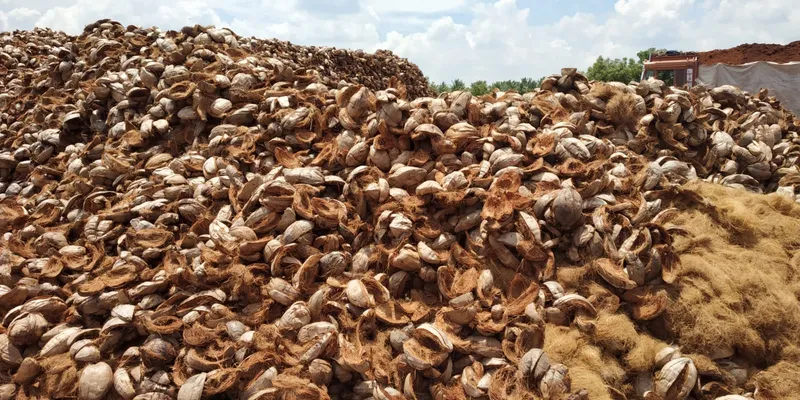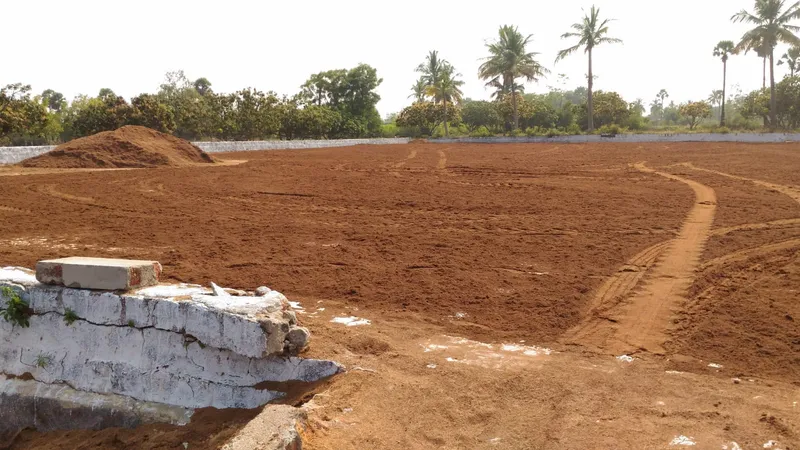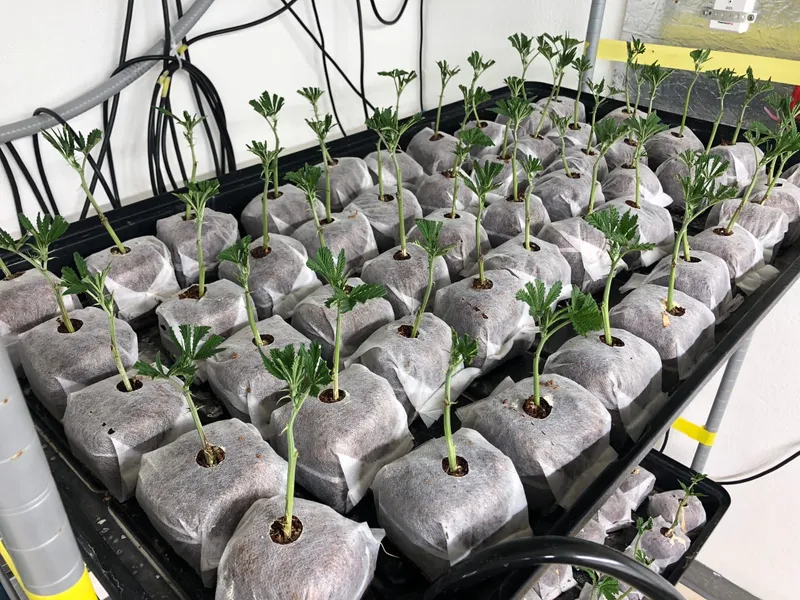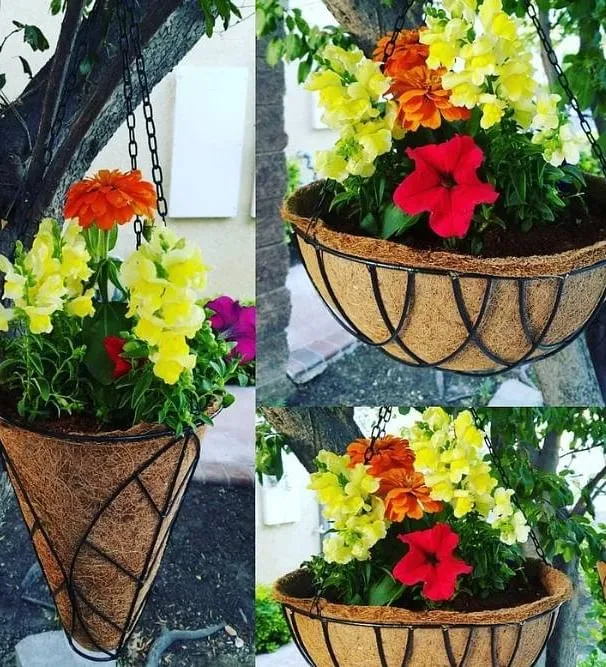From waste to wealth: this startup is using coconut by-products to make pots, grow bags, and more
Started by Anees Ahmed, Chennai-based Global Green Coir upcycles coco peat from coconut husk to make varied products like pots, bricks, blocks, and grow bags that are also exported internationally.
Anees Ahmed, a researcher based in Chennai, was introduced to the concept of coco peat through his father, who worked in the coir fiber industry in Tamil Nadu.
A graduate in Biotechnology, Ahmed became intrigued by this material and continued his research to understand its properties and applications. He found out that coco peat, also known as pith, is a by-product left behind after extracting fiber from coconut husks, which is often considered as waste. Today, coco peat is used in various fields such as greenhouses, nurseries, indoor gardening, and more.
According to Dutch researchers, its water-holding capacity, aeration, pH-neutral properties, disease resistance, and renewable nature makes it suitable for horticulture and agricultural activities.
Recognising the potential of this material, Ahmed started Global Green Coir in Chennai in 2012. The startup upcycles coco peat from coconut husk to make varied products like pots, bricks, blocks, and grow bags that are also exported internationally.
“Repurposing is crucial in today’s world as it not only involves giving back to nature, but also creates a closed-loop system where all products are utilised efficiently,” Ahmed tells SocialStory.
Early life
Ahmed was fond of nature and gardening since childhood and used to grow vegetables and fruits in a garden near to his place.
Although he could not pursue gardening in his college days, he often found himself longing for it. Growing up in coconut-rich regions and with his father working in the industry, he gained insights into coconut cultivation and its by-products.
“Starting a business was never on my mind, but several things led me in that direction,” he says.
After completing graduation in biotechnology, he worked as a researcher in various places like the University of Edinburgh and the Central Institute of Brackishwater Aquaculture.

Coconut husk
Ahmed recalls that while studying about coco peat, he discovered that many countries used peat moss as an ingredient for holding nutrients in the soil. However, the material comes with many drawbacks. Ahmed explains that the extraction of this material leads to methane production, which further contributes to global warming.
As such, he realised that coco peat could be a better alternative to this material. Moreover, he adds that coco peat was mostly considered a waste material or a pollutant because if it catches fire, it can burn for days. As a result, it was often discarded.

Coco pith drying yard
This led him to start Global Green Coir. When Ahmed entered the market there were only a few companies using this material as coco peat was not popular among people.
“I remember in the beginning people and companies used to give us coco peat for free as they considered it a waste by-product. But India is a huge market and most people are adapting to this by-product slowly,” he adds.
The coco peat market size was valued at $3.89 billion in 2023. It is expected to see a CAGR of 4.4% during the forecast period 2024-2030 and reach $5.26 billion by 2030.
Upcycling coconut by products
The startup first gathers coconut husks from coconut merchants or fiber extraction units. The material is then transported to Global Green Coir’s processing facility in Chennai where it is processed in-house through its fiber extraction units.
While some of the extracted fiber is further sold through B2B channels to rope and mattress makers, the rest is used to make a range of gardening products like pots, coir baskets, bricks made from coco peat, and more for personal use. The coir pith is used to make grow bags, coco peat discs, etc., for commercial use.
The pith is currently sold at Rs 15-18 per kg. Other products like pots range from Rs 5 to Rs 100 and baskets cost Rs 50 - Rs 200 depending on the size.
Ahmed elucidates that initially the cost of producing coir pith used to be less than the cost of transporting it to far-off areas like Punjab and Maharashtra. So, to tackle the problem, the startup started compressing the material.

The pith is currently sold at Rs 15 to 18 per kg.
The pith is washed and dried after which the material is compressed through a hydraulic machine so that more amount of pith can be transported.
The startup sells its commercial-use products through its website and to wholesale retailers. The gardening items are sold through e-commerce websites like Amazon and Flipkart.
“Mostly, we have 10% of business coming from India and the rest is from countries like the US, Europe, the Middle East, and more,” he adds.
Talking about competition, he says that now there are many competitors in the market. However, Dutch Plantin based in India and Fibre Dust based in the US have had been major competitors from the start.
In India, the startup is currently selling its products in Punjab, Maharashtra, Tamil Nadu, and Uttarakhand. It is using about 200 to 250 tonnes of coir pith every month to make varied products.

Coconut fibre is used to make pots and baskets
Ahmed shares that he and his family made an initial investment of Rs 4 lakh to start the business. They set up the machines one by one with the earnings. The total capital investment till now has been around Rs 1 crore. Additionally, the turnover for the last five years has been around Rs 50 crore.
Talking about challenges, Ahmed says that since most of their business comes from exports, Covid lockdown was a tough time to navigate for the startup. The increase in freight and lack of container availability made the situation worse.
However, Ahmed says that the company kept working in India and soon after the lockdown was over, it was back on track.
Ahmed explains that coco peat isn’t widely used in outdoor agriculture because it serves as a substitute for soil.
Given the ample availability of soil, replacing it entirely with coco peat wouldn’t be practical. However, he notes that coco peat can still be utilised as a soil conditioner.
Ahmed believes that the use of coco peat in horticulture activities is increasing and soon more and more people will realise the potential of the material.
“With increasing focus on organic farming, coco peat will soon gain more popularity,” he says.
Edited by Megha Reddy







